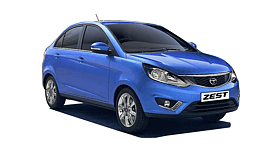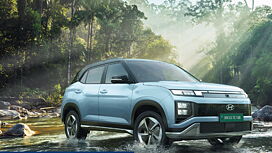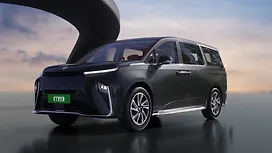Introduction

Necessity is the mother of invention, but it can also to lead to some quirkiness, especially when channelled into finding a workaround. India is perhaps the only market in the world where everything, including a sedan, crossover, SUV and an MPV with seven seats can still be categorised as a small car (compact limousine coming soon?).
Think about any standard body type, scale it down to under four metres, fit a small engine and voila! a small car with much lesser excise duty. Not all of these are a work of ingenuity though, some have aesthetics comparable with a warthog, leave alone the discussion on convenience and safety.
Yes, they sell and don’t blame the manufacturers as the sub-four metre cars is a phenomenon created by the Indian tax structure. The compact sedans were the first of the tax saving schemes for the Indian carmakers and have gone on to become a definitive segment. We compare four of the best-selling sedans to see if they are just overgrown hatchbacks, shrunken sedans or revolutionary products that offer more than competitive price.
(P.S. We drove the pre-facelift version of the Dzire, but have given due consideration to the additional features of the new model).
Looks
Before we go into the matters of aesthetics and appeal, let us get one thing straight we are talking about a segment made specifically to take advantage of the tax regime and there are definite compromises on looks. So, even the best of the compliments to any of these cars should be taken with a pinch of salt.

Among the four here, the Maruti Suzuki Swift Dzire has been around for the maximum duration. It is also the only one that looks like an afterthought, the front is exactly like that of the Swift and the third box (boot) has been somehow squeezed in by literally hacking off everything over four metres. The Swift by itself is a mighty good looking hatchback and that means the front of the Dzire looks neat as well. Unfortunately, the rear has received so little attention that the overall car looks odd, especially from the three-quarters and the rear. The facelift gets a new front bumper, black element for the headlamp and fog lamp bezel. All of these changes make the Dzire look slightly better, but without alteration to the overall shape it still scores poorly on looks.
The Amaze is the first sub-four metre sedan that looks like it is designed to be a compact sedan. Due to the nature of the segment the size isn’t going to be any different, but compared to the Dzire this one looks proportionate. I was never a big fan of Honda’s compact car design and have made it clear when I reviewed both the Brio and the Mobilio. So the problem here is more to do with the design with quirky looks; it does look nicer in this blue colour, still I will not rate the Amaze any better than the Dzire on looks.
The Xcent and Zest were launched much later and both Hyundai and Tata have managed to design cars with much better proportions. It does help that their bonnets are relatively shorter and that means there is that much extra space to fit a boot that looks slightly more conventional.

The Zest gets the same age old ‘smiling’ Tata face that resembles with the Indica Vista, just that it has gone through a plastic surgery, taken a couple of botox shots and also uses a heavy amount of makeup. It looks pretty from the front with the projector headlamps and all the chrome bling, even the side profile is decent and there is not one thing that you can point at till you reach the tail. While the proportions are completely alright, the tail lamp design is so messed up that I would rather look at the rear-view mirror in case I am behind one.
While I like the Hyundai Xcent in metallic colours, we got a plain white one for the comparison story. It looks a little dull, but among these four cars this is without doubt the better looking car. It draws inspiration from the Grand i10, like the rest of these cars draw from their hatchback counter parts. The extension beyond the C-pillar is well designed and while the tail lamps do not match the rest of the car, they are simple and do not evoke extreme views.
I have completely avoided lauding any of these cars for a simple fact that none of these are ever going to be beauty contest winners. But since looks are an important part of car buying, the Xcent wins here by a decent margin.
Interior
While the car we drove for the review had limited features, the facelifted version now gets few additions that puts it almost on par with the competitors. It now gets start/stop button and rear parking sensor as standard for the top-end variants. However, the problem with the Dzire’s cabin is the space crunch, the Swift was never one of the better cars in terms of rear passenger comfort and the Dzire offers the exact same amount of space. Also the boot space at 320-litres is significantly less than that of the Amaze and Xcent.

With the recently introduced AVN pack, the Amaze also has sufficient number of features. It gets a touch screen music system with SAT-NAV, but the price of the top-end version is significantly higher than the other cars. The fit and finish of the beige interior isn’t great either, but the Amaze is one of the more spacious cars. It will accommodate five people with comfort and also take their entire luggage in the 400-litre boot.
The Xcent, like all Hyundais is loaded with features and Tata this time has done the same thing to woo the customers. The Xcent offers a start/stop function, music system with 1GB memory, rear AC vents and so on; these may be nice features, but the Tata features are actually more useable. I will definitely trade the start / stop button for projector headlamps, the missing rear AC vents are actually not needed in the small car and the quality of sound of the Harman music system even in this second to top variant is way above par. Moreover, like in all the segments, Tata has managed to pack much more cabin space. It is almost comparable with C-Segment sedans, however, the boot space is much lesser compared to the segment-leading 407 litres of the Xcent.
The interior quality of the Tata cars has improved significantly compared to their older cars, still the usage of hard plastic is a turn off. The Hyundai Xcent is only marginally better in fit and finish, so after much contemplation I will pick the Zest as the winner in this segment for spacious cabin and more usable features.

Performance
The performance is where all four cars are completely different – the Amaze is the most powerful of the lot, while the Xcent uses a tiny three pot motor that puts out a paltry sum of torque and power. Both the Dzire and the Zest use the same engine, but where Suzuki uses the standard five-speed manual transmission, the Tata should be hailed as the new messiah of the city commuters, offering the budget diesel AMT.
Unfortunately, the first car I drove among the four was the Amaze and then it was obvious everything else was bound to feel slow. The 1.5-litre engine with 100bhp and 200Nm are the best figures in the compact sedan segment and it has an amazing torque curve that runs flat from 1750rpm to 3500rpm, but more amazing is the fact that this feat has been achieved without a variable geometry turbo (VGT). The turbo lag isn’t much either, at least when compared with the multijet diesel in Dzire (Zest AMT is an entirely different ball game, we will discuss that in a bit ). The gearshifts are nice and positive as well and the only drawback of the Amaze powertrain is that it is noisy (by Honda standards).
Standalone the Xcent won’t face too much criticism for performance, but put it in perspective with the other two manual cars here and it suddenly starts looking dull. The good thing from an average everyday user’s perspective is that there is no turbo lag at all, unfortunately that is simply because it hardly has any power. The 1.1-litre three-cylinder engine churns 71bhp and 180Nm of torque and the best thing about this engine is the refinement. The efficiency at 24.4kpl looks great on paper, but the effort required for overtakes and getting back to cruising speed after every speed breaker (there are at least a million in and around Mumbai) makes it fairly difficult to get anywhere close to that number in the real world.

The Swift Dzire diesel uses Fiat’s 1.3-litre multijet engine that is used by at least 10 other cars in the Indian market, including its rival the Tata Zest. It is almost safe to say then that it has got the basics right. The car produces 74bhp and 190Nm of torque, these are nowhere close to the best numbers, but with better gearing and turbo lag comparable with the timeliness of Bollywood celebrities at events, it does provide a nice thrust around 2,000rpm. The turbo lag is a little annoying during daily commutes and makes it necessary to drop a gear for overtakes despite being a diesel. Frankly speaking, the 1.3-litre engine with five-speed manual is more than a decent setup; it has sufficient power, the gearbox works well and even the real world efficiency is great. Also Maruti now claims the highest fuel efficiency in the segment of 26.59kpl.
The Zest stands out for taking a new route, while it is not a technological wonder, it gets brownie points for being the first and only diesel small car in the country (BMW Mini, A-Class and others don’t count; if a car costs more than equivalent space in Mumbai, it is not really ‘small’, is it?). The diesel AMT uses the VGT version of the four-cylinder multijet diesel producing 89bhp and 200Nm of torque. We can get into complexities of how the AMT is not actually an automatic and it is just an interface for a manual gearbox, but the fact remains that there is no clutch and one can drive it without bothering to touch the gear lever. Leave it alone and the transmission is so slow that it feels like using a two year old android that has never been cleared of its cache. It doesn’t matter though, since driving in city traffic probably is even slower and Zest does well enough to cope up. Manually shifting gears is a better option, the response is quicker and this is a more comfortable way of driving the car on the highway. The AMT does take a toll on the fuel efficiency and though the company claims it to be over 23kpl, the actual numbers are around 17kpl.
If performance matters (if!), the Amaze is the clear winner among the manuals on everything including power, gearshifts and real world efficiency. The Zest AMT has no direct competition and while I may take a pot shot at the gearbox sitting here in the comforts of the office, this gearbox let me enjoy peaceful evenings in Mumbai after the drive back in Mumbai traffic.

Ride & Handling
This is where the differences between the four cars is minimal – all of them are tuned mainly towards comfort. And let me repeat, these are budget cars (slightly bigger looking, but still budget) and there is only so much you can expect in terms of handling.
The Dzire based on the Swift feels the most connected to drive, although the steering feedback is almost non-existent, which is also the case with all the cars apart from the Amaze. The Amaze lags on suspension set up, so while it does have power and responsive steering, it still fails to be a driver’s car due to its overtly soft set up. The Xcent and Zest are biased towards ride and do not even attempt being a driver’s car. It means, the Dzire is the car to pick if driving fun is also on the list of interests.

The ride quality of all the cars is decent – they are all mostly comfortable, still the Xcent wins over the rest, but only by a slight margin.
Verdict
Three out of the four cars come with clear advantages – the Xcent wins on looks, the Zest is the best bet in terms of features and convenience, while the Amaze scores on performance. There is no denying that these are still adjustments and while we might be squeamish about few of the innovations, all of them offer incredible value.
The Zest with the most number of usable features and the AMT has the lowest price tag among the four cars here. Not surprisingly the Amaze is the most expensive, while the Dzire and Xcent are evenly matched. The price won’t be a deciding factor in this comparison, since the difference isn’t too high.

So if we have to pick a winner, it would be the Xcent for being an all-rounder on pretty much everything but performance. And the performance generally is the last among the priorities (after safety). The facelift Dzire comes close second, while Honda falls behind mainly due to pricing. Where Zest manual will fight with Amaze for the third position, this automatic variant wins for being a one of a kind value proposition.

























